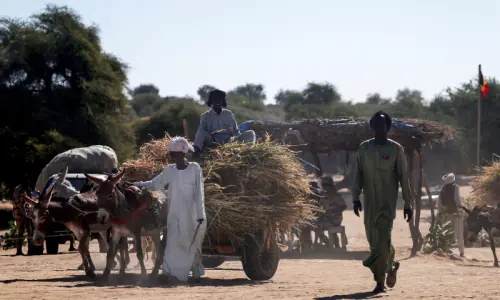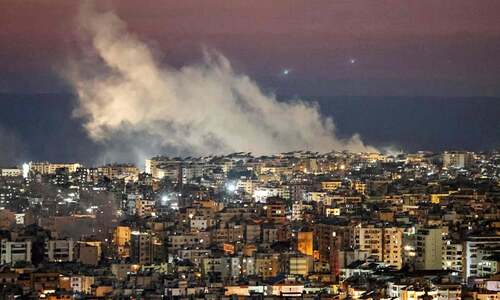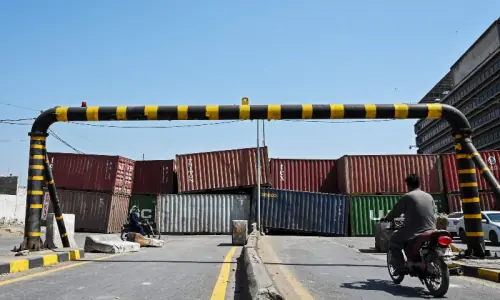ISLAMABAD: The official spokesperson of US State Department in Washington may not like to describe John Kerry skipping a visit to Islamabad as a snub to Pakistani leaders, but that is how it is largely being perceived in Islamabad.
Islamabad was initially part of US Secretary of State’s itinerary, but at a later stage US officials said that due to unexpected developments in Syria, he would not be proceeding to Pakistan. This was unexpected for Pakistan’s political leadership, including Prime Minister Nawaz Sharif, as they were ready to have their first direct contact with a senior US administration official after coming to power in the May 11 general elections.
“We were expecting to discuss a wide range of talk, not just Afghanistan,” said a senior official of the new government in Islamabad.
Some of the foreign ministry officials tried to explain Kerry’s not coming to Pakistan by saying that he was expected a much larger agenda of talks in Islamabad and for why he needed more time.
Pakistan’s hopes were pinned on the expectations that the visit of the US Secretary of State will lead to a revival of the Pak-US strategic dialogue, which has been stalled since the Abottabad raid that killed Osama Bin Laden and led to much acrimony between the two countries.
The government still hopes that the strategic dialogue could be revived on Kerry’s next trip to Pakistan, but sources told Dawn.Com there was little chance of John Kerry visiting Islamabad in the near future.
Pakistani officials see Kerry’s continued engagement on Afghanistan throughout his Asia trip as a particular snub, with Pakistan being ignored throughout this time.
There is a view in Islamabad that Americans will come back to Pakistan for help when the Afghan situation gets to a crucial stage. “They (Americans) will come back to Islamabad for help on Afghanistan. They need us there,” said former Foreign Secretary Shamshad Ahmed Khan.
However, the most recent ‘snub’ was particularly noted in Islamabad, especially after Kerry acknowledged a greater role for India in bringing stability and democracy to Afghanistan.
In a speech in New Delhi, John Kerry said that India has a central role to play in ensuring free and fair elections in Afghanistan, scheduled to take place in April next year.
In his meetings with Indian officials, Kerry directly briefed them about the peace initiative with the Taliban and told media that a senior US diplomat would be visiting New Delhi in the coming days to brief them on the latest development in the Doha talks.
The US Secretary of State visited New Delhi as part of a visit to the Middle East and South East Asia.
Officially, it was stated that he was skipping Islamabad because he got too busy because of the latest developments in Syria. But then he landed in New Delhi and discussed Afghanistan with the Indian leadership.
Throughout his Middle East and South East Asia trip, Kerry remained engaged on Afghanistan. In Washington, the State department spokesman said that it was not meant as a ‘cold shoulder’ to the Pakistani leadership.
He went to Doha and New Delhi and in each station he discussed Afghanistan and the latest peace initiative with the Afghan Taliban. While he was still on the Asia trip, Kerry even spoke twice to Afghan President Hamid Karazai and tried to convince him to join the peace talks.
Analysts say that there was no public reaction from Pakistan on this particular situation primarily because Islamabad has realised during the past two years that the US has decided to give greater ascendency to India in Afghanistan and this is now an ‘old story’ in Islamabad.
“Americans have in the past few years given much ascendency to India in Afghanistan and it is going to be a big problem for us in the coming years,” said former Foreign Secretary Shamshad Ahmed Khan.
Experts believe that Kerry’s assertions in New Delhi represent the public acknowledgement of that greater role.
Khan said that this particular statement does not mean much. “Ensuring free elections means Indians will train them in electoral exercise,” he said.
However, the real concern in Islamabad is that India may get the opportunity to train the Afghan security forces.
In the past two years, Pakistani security officials have told Americans in talks that Pakistan does not want an unstable force on its border, which can turn to drug smuggling and internal strife when the Americans leave.
When some sections of the Pakistani media noted that the US Secretary of State deliberately skipped Islamabad, US diplomacy immediately went into an overdrive of damage control.
The US ambassador told a group of journalists in Islamabad that Pakistan has a central role in paving the way for Doha talks.
Similarly, officials said that the US Special Representative on Afghanistan, James Dobbins in his meetings with Pakistani officials, did not repeat any of the harsh US demands that the Pakistani leadership has faced during the past few years.

































